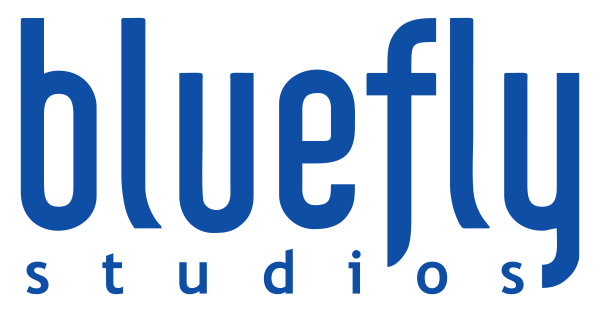Businesses are constantly seeking innovative ways to connect with their target audiences and propel their growth. Digital marketing platforms have emerged as indispensable tools that empower businesses to navigate the intricacies of the online realm, engage with customers, and drive results like never before.
Whether you’re a seasoned marketer looking to stay ahead of the curve or a business owner exploring the possibilities of digital marketing, we’ve got you covered. Here’s everything you need to know about digital marketing platforms.
What is a Digital Marketing Platform?
In the dynamic world of online business, digital marketing platforms are the powerhouse behind successful strategies and skyrocketing brands. They basically refer to online tools, software, or services that facilitate the planning, execution, and analysis of marketing campaigns across various digital channels.
Digital marketing platforms typically integrate multiple functions, such as advertising, social media management, email marketing, analytics, and customer relationship management (CRM); in turn, enabling businesses to reach their target audiences, optimize their marketing efforts, and measure the effectiveness of their campaigns in the digital space.
What is the Importance of Digital Marketing Platform?
The significance of marketing platforms for modern businesses cannot be overstated, as they offer several key advantages that drive growth and success. Some of the reasons marketing platforms are vital for businesses include the following:
Attracting Tech-Savvy Consumers
Numerous consumers rely on online marketing channels such as email and social media platforms. Additionally, cell phone technology has become a preferred means for researching and purchasing products. As a result, engaging with customers through online messaging tools presents an appealing alternative to physical store interactions.
Enabling Growth and Scalability
These platforms act as powerful catalysts, connecting producers and consumers through existing networks, facilitating rapid audience expansion. With increased visibility, businesses can venture into new markets, grow brand awareness, and ultimately boost sales.
Leveraging Technological Advancements
The advent of artificial intelligence (AI) has revolutionized marketing, equipping marketers with cutting-edge tools to reach consumers digitally. AI-powered capabilities enable precise targeting of specific consumer groups, enhance consumer value, and optimize marketing efforts, leading to more favorable outcomes for brands.

Main Types of Digital Marketing Platforms
Digital marketing platforms come in various types, each serving specific purposes and catering to different aspects of a comprehensive marketing strategy. Here are the main types of digital marketing platforms:
1. Social Media Management Platforms
These platforms facilitate the scheduling, publishing, and monitoring of social media content across various social media channels. They often offer features for audience engagement, social listening, and performance analytics. Examples include Hootsuite, Buffer, Sprout Social, and Socialbakers.
2. Email Marketing Platforms
Email marketing platforms help businesses design, automate, and analyze email campaigns. They offer features like email templates, audience segmentation, A/B testing, and email performance tracking. Popular email marketing platforms include Mailchimp, Constant Contact, AWeber, and ConvertKit.
3. Content Management Systems (CMS)
CMS platforms enable businesses to create, manage, and publish digital content on their websites and blogs. They often offer user-friendly interfaces and SEO optimization tools. WordPress, Joomla, and Drupal are widely used CMS platforms.
4. Search Engine Marketing (SEM) Platforms
These platforms are designed for managing and optimizing search engine advertising campaigns, such as pay-per-click (PPC) ads. Google Ads (formerly Google AdWords) and Microsoft Advertising are prominent SEM platforms.
5. Customer Relationship Management (CRM) Platforms
CRM platforms help businesses manage and nurture customer relationships. They store customer data, track interactions, and provide insights to enhance customer experiences. Salesforce, HubSpot CRM, and Zoho CRM are popular CRM platforms.
6. Influencer Marketing Platforms
Influencer marketing platforms connect brands with relevant influencers for collaborations and sponsored content. They facilitate influencer discovery, campaign management, and performance tracking. Examples include AspireIQ, Traackr, and Influencity.
Related Article: An Overview of Digital Marketing Strategies (Plus Top-Notch Digital Marketing Tactics)
7. Analytics and Reporting Platforms
These platforms focus on data analytics and performance tracking. They provide insights into website traffic, user behavior, conversion rates, and marketing campaign performance. Google Analytics and Adobe Analytics are widely used analytics platforms.
8. Video Marketing Platforms
These platforms cater to video content creation, hosting, and distribution. They often include features for video editing, analytics, and video SEO. YouTube and Vimeo are two of the most well-known video marketing platforms.
9. Affiliate Marketing Platforms
Affiliate marketing platforms enable businesses to set up and manage affiliate programs, where affiliates promote their products or services and earn commissions for driving sales. ShareASale and CJ Affiliate (formerly Commission Junction) are popular affiliate marketing platforms.

Top Digital Marketing Platforms
Here is a list of some of the top digital marketing platforms that have gained popularity and recognition for their comprehensive features and effectiveness:
Google Marketing Platform
Google Marketing Platform is a suite of marketing tools by Google that empowers businesses to manage their online presence effectively. It includes Google Ads for online advertising, Google Analytics for website and marketing analytics, Google Data Studio for data visualization, and other tools. With these, businesses can optimize their online advertising campaigns, track website performance, and gain valuable insights into user behavior.
Facebook Business Manager
The Facebook Business Manager is a centralized platform that allows businesses to efficiently run and monitor Facebook and Instagram campaigns. As the largest social media platform, Facebook provides a potent marketing tool to promote businesses. The platform enables businesses to moderate and respond to comments, fostering strong brand presence and customer relationships. Utilizing Facebook ads through the Business Manager offers an effective way to connect with the target audience and enhance brand visibility.
HubSpot
HubSpot is an all-in-one inbound marketing platform that offers a wide range of tools to streamline marketing efforts. It provides features for content creation, email marketing, social media management, lead generation, and customer relationship management (CRM). The platform is designed to attract, engage, and delight customers, making it an ideal choice for businesses looking for an integrated solution to manage their marketing activities.
Mailchimp
Mailchimp is a widely-used email marketing platform that simplifies email campaign management. It offers user-friendly features for designing, automating, and analyzing email campaigns. With Mailchimp, businesses can segment their audience, conduct A/B testing, and track the performance of their email marketing efforts, making it a popular choice for businesses of all sizes.
Adobe Marketing Cloud
Adobe Marketing Cloud is a suite of marketing tools by Adobe that empowers businesses to create, manage, and deliver personalized customer experiences. It includes Adobe Analytics for data analysis, Adobe Campaign for managing marketing campaigns, and Adobe Experience Manager for content management. Adobe Marketing Cloud is suitable for large enterprises seeking comprehensive marketing solutions.
SEMrush
SEMrush is a comprehensive SEO and content marketing platform that provides valuable insights to improve search engine rankings and organic search performance. It offers features for keyword research, backlink analysis, competitor research, and content optimization. Businesses can use SEMrush to develop data-driven SEO strategies and gain a competitive advantage in the digital landscape.
Salesforce Marketing Cloud
Salesforce Marketing Cloud is an enterprise-level marketing automation platform designed to deliver personalized customer experiences. It facilitates lead generation, lead nurturing, and targeted marketing campaigns across multiple channels. With Salesforce Marketing Cloud, businesses can enhance customer engagement and drive conversions through tailored and data-driven marketing initiatives.
Related Article: Digital Advertising: Mastering the Foundations to Ensure Your Business’ Success
What are the Benefits of Digital Marketing Platforms to Businesses?
Digital marketing platforms offer numerous benefits to businesses, enabling them to thrive in the modern digital landscape. Here are some of the key advantages that make them crucial for businesses:
Expanded Reach and Global Presence
Digital marketing platforms enable businesses to transcend geographical boundaries and reach a vast global audience. With online advertising, social media, and search engine optimization, companies can connect with potential customers from different parts of the world, boosting brand visibility and recognition.
Precise Audience Targeting
Digital marketing platforms offer sophisticated targeting options based on demographics, interests, behavior, and more. This allows businesses to deliver highly personalized content and advertisements to the right audience, thereby increasing the chances of engaging and converting potential customers.
Cost-Effectiveness and Better ROI
Compared to traditional marketing methods, digital marketing platforms are often more cost-effective. Businesses can allocate their budgets more efficiently, investing in channels that deliver higher returns on investment (ROI) through real-time data and analytics. This level of cost control and tracking is unparalleled in traditional marketing.
Real-Time Data and Analytics
Digital marketing platforms provide businesses with valuable real-time data and analytics, offering insights into the performance of marketing campaigns. Metrics like website traffic, conversion rates, click-through rates, and customer engagement help businesses make data-driven decisions, adapt their strategies, and seize opportunities promptly.
Accessible to Businesses of All Sizes
Digital marketing platforms cater to businesses of all sizes, making the power of online marketing accessible to startups, small businesses, and enterprises alike. They level the playing field, allowing businesses with limited resources to compete with larger counterparts.
Related Article: A Comprehensive Guide on How to Improve Your Digital Marketing Strategy

How to Choose the Best Digital Marketing Platform?
Selecting the best digital marketing platform for your business requires careful consideration of several factors. Here’s a step-by-step guide to help you make the right choice:
1. Identify your marketing goals.
Start by defining your marketing objectives. Determine what you want to achieve with the platform, such as increasing website traffic, boosting sales, enhancing brand awareness, or improving customer engagement.
2. Assess your budget.
Consider your budget constraints and determine how much you are willing to invest in a digital marketing platform. Keep in mind that different platforms may have varying pricing models, so choose one that aligns with your financial capacity.
3. Analyze features and functionality.
Research the features and capabilities offered by each platform. Look for essential tools like audience targeting options, automation features, analytics, and integrations with other marketing tools.
4. Consider user-friendliness.
Evaluate the platform’s user interface and ease of use. A user-friendly platform will save time and reduce the learning curve for your marketing team.
5. Look for scalability.
Choose a platform that can grow with your business. Consider whether the platform can handle your current needs and also accommodate future expansion and increased demand.
6. Read reviews and testimonials.
Read reviews and testimonials from other businesses using the platform. This will give you valuable insights into its strengths, weaknesses, and overall performance.
Elevate Your Reach with BlueFly Studios’ Digital Marketing Services
Ready to take your digital marketing to the next level? Look no further! Choose BlueFly Studios as your trusted partner for all your digital marketing needs. With our cutting-edge technology, personalized strategies, and dedicated support, we’ll help you reach your marketing goals and drive tangible results. What are you waiting for? Join our growing list of satisfied clients and unlock the true potential of your online presence. Contact us now to get started!




